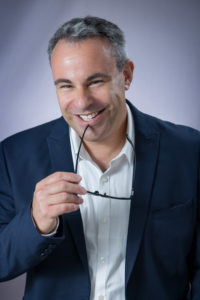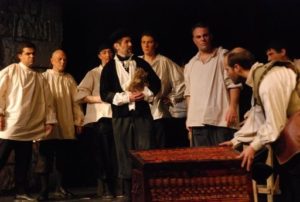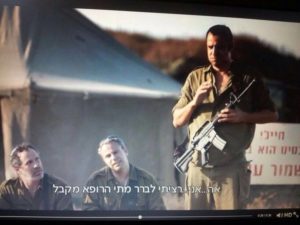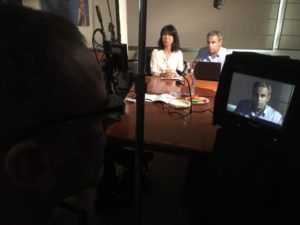On my late mother’s yahrtzeit about 3 years ago, I spoke at an American yeshiva in Modiin which is under the leadership of Rabbi Chait who comes from a pretty well-known family in Far Rockaway, NY where I was born. One of the Rabbonim there wanted a speaker who had a “different type of job” than most people they knew.
Hating to stereotype, but a lot of people we Orthodox Jews know are either doctors, lawyers, businessmen, accountants, Rabbis, dentists or high tech people (we are in Israel after all). When the person in charge heard of an actor who also is a “frummer”, I was graciously asked. Being that this event was scheduled on the same day as my late mother’s yahrtzeit, I jumped at the opportunity.

American boys, many from my neck of the woods filled the room. Eager 18 and 19 year olds ready to hear some words of wisdom from somebody a bit different. I’ll be honest, I never gave a speech at a yeshiva before and although I identify myself as a religious person, I never thought that I was ever on the level of one who is qualified to speak at a yeshiva.

While looking around the room, I asked how many after their gap year in Israel plan on continuing to university? Everyone’s hand shot up. YU, CUNY/Queens, CUNY/Brooklyn, SUNY/Albany, SUNY/Buffalo, Columbia, Princeton were answers I received and somewhat expected. I asked aside from the stereotypical majors that we tend to study, if there was anyone interested in the arts – be it fine arts or performing arts. Only one or two raised their hands. The rest, I’ll gladly share with you what I shared with them.
Basically, I tried majoring in those stereotypical majors and quite frankly, it was a nightmare. It simply wasn’t me. In my gut and in my heart, I dreamt of being either on stage or in front of a camera. As a child I remember reading through plays with gusto, reading out loud as if I were one of the main characters. School plays were another issue altogether as I would watch with such a critical eye where after about two grueling hours, the crowd would roar with applause with the popular kids taking bows and ten year old me would be sitting there in the audience with my arms crossed and rolling my eyes wondering what, in the name of everything holy were the directors of this play thinking when they cast such non-talented kids.
Fast forward to the early 2000s to the present.

With my very obvious Anglo accent being my main obstacle to more regular roles, my agent sends me on auditions for English speaking roles over Hebrew ones, although I have acted in Hebrew. My scenes in the 4th season of Ramzor as a very right wing miluiimnik stationed in Gaza (it was actually shot by the beach in Bat Yam) enabled me to show off my Hebrew speaking skills, yet the character I played was an American oleh.
With some more exceptions, be they singing or pantomime roles on commercials, I stick to English. Sporting a kippah on my head doesn’t really make a difference. For many roles like commercials, days begin at about 6:00 AM with a full catered breakfast and copious amounts of coffee; with a meat lunch and even supper if it’s a long day (shooting can run up to 14 to 16 hours at times for a 2 minute commercial or film/TV scene). Depending on the time of year, I’m generally off to the side davening shaharit to myself. It’s not often, yet sometimes I do have company, even with an “A-List” actor or two. People tend to smile, some yell out “kol hakavod” or “pray for me “.

I generally respond with a smile and a wave. Kosher food is generally not a problem as many of the caterers productions use do have kashrut certification. If not, production assistants gladly order out for you. Yes, I do have time in between scenes to daven mincha. English speaking theatre companies in Israel are generally a lot more “frum friendly”.
When I worked with Israel Musical Theatre’s production of “Man of La Mancha”, at the Khan Theatre in Jerusalem, we gave a matinee and evening performances. In between performances, with actors and tech crew, we had full minyanim for mincha and ma’ariv – talk about an “only in Israel” moment.
B”H, I passed my love of acting down to three of my four sons. Daniel, Motti and Yoni have all acted professionally in one genre or another. With their native speaking Hebrew skills, they have opportunities to audition for roles that I never could audition for.
At the end of the day, you do what you love to do. It makes all the difference.
